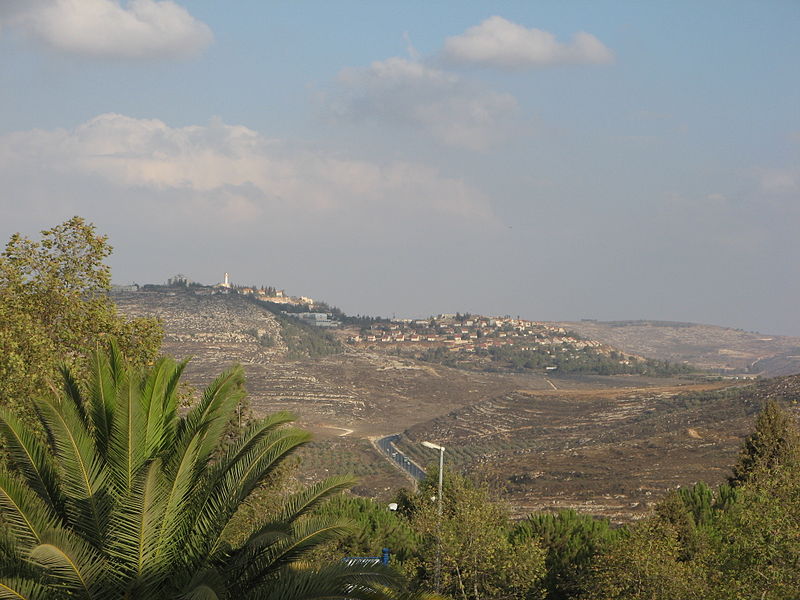18 June. Samuel is born at Ramah
“There was a man named Elkanah son of Jeroham from Ramathaim in the mountains of Ephraim. Elkanah was from the family of Zuph… Elkanah had two wives named Hannah and Peninnah. Peninnah had children, but Hannah had none.”
“Every year Elkanah left his town of Ramah and went up to Shiloh to worship the LORD All-powerful and to offer sacrifices to him. Shiloh was where Hophni and Phinehas, the sons of Eli, served as priests of the LORD.”
“When Elkanah offered sacrifices, he always gave a share of the meat to his wife Peninnah and to her sons and daughters. But Elkanah always gave a special share of the meat to Hannah, because he loved Hannah and because the LORD had kept her from having children.”
“Peninnah would tease Hannah and upset her, because the LORD had made her unable to have children. This happened every year when they went up to the house of the LORD at Shiloh. Peninnah would upset Hannah until Hannah would cry and not eat anything.”
“Her husband Elkanah would say to her, ‘Hannah, why are you crying and why won’t you eat? Why are you sad? Don’t I mean more to you than ten sons?’”
“Once, after they had eaten their meal in Shiloh, Hannah got up. Now Eli the priest was sitting on a chair near the entrance to the LORD’s house. Hannah was so sad that she cried and prayed to the LORD. She made a promise, saying, ‘LORD All-powerful, see how sad I am. Remember me and don’t forget me. If you will give me a son, I will give him back to you all his life [as a Nazirite], and no one will ever cut his hair with a razor.’”
“While Hannah kept praying, Eli watched her mouth. She was praying in her heart so her lips moved, but her voice was not heard. Eli thought she was drunk and said to her, ‘Stop getting drunk! Throw away your wine!’”
“Hannah answered, ‘No, sir, I have not drunk any wine or beer. I am a deeply troubled woman, and I was telling the LORD about all my problems. Don’t think I am an evil woman. I have been praying because I have many troubles and am very sad.’”
“Eli answered, ‘Go! I wish you well. May the God of Israel give you what you asked of him.’ Hannah said, ‘May I always please you.’ When she left and ate something, she was not sad any more.”
“Early the next morning Elkanah’s family got up and worshipped the LORD. Then they went back home to Ramah. Elkanah had sexual relations with his wife Hannah, and the LORD remembered her. So Hannah became pregnant, and in time she gave birth to a son. She named him Samuel [meaning ‘God heard’], saying, His name is Samuel because I asked the LORD for him,’”
(1 Samuel 1:1-20)

During the time of Elon’s judgeship (c.1097 - c.1088BC) and before the seventy year period of Philistine rule in Israel (c.1081 - c.1012BC), Elkanah and his two wives Hannah and Peninnah were living at Ramah in the hill country of Ephraim (near modern-day Ramallah).
Every year they went to the religious festival at Shiloh where the Ark of the Covenant was kept in the Tent of Meeting (see Joshua 18:1). Hannah was childless, and Peninnah (who had several children) used to make fun of her. Hannah became very upset, so she prayed to the LORD that she would conceive.
She also promised God that, if she had a son, she would set him apart to serve the LORD as a ‘Nazirite’ (see Numbers 6:1-21). God heard her prayer, and some time later, in c.1094BC, Samuel was born at Ramah.
The sanctuary at Shiloh – located at Khirbet Seilun between Bethel (Beitin) and Shechem (Nablus) – became the home of the sacred Ark of the Covenant soon after the Israelites’ conquest of Canaan in c.1406 BC (see Joshua 18:1).
The top of the hill of Shiloh was levelled to form a flat rectangular platform upon which the Ark of the Covenant could be erected within the Tabernacle – the ‘Tent of the LORD’s presence’ (see Exodus 25:8-8).
The sacred precinct was enclosed within an outer ‘temenos’ wall, which was excavated by Finkelstein in the 1980s. The sanctuary at Shiloh became the site of an annual religious festival during the time of the Judges (see Judges 21:19).
By the time Elkanah and his wife Hannah went each year to offer a sacrifice at Shiloh (see 1 Samuel 1:3), the simple tented enclosure had been replaced by a more permanent structure with doors (see 1 Samuel 1:9).
The photo (by עדירל) shows the hilltop settlement at Shiloh where the sanctuary containing the ‘Tent of the LORD’s presence’ was located.
You can read more about Shiloh @ https://www.thebiblejourney.org/biblejourney2/29-the-journeys-of-ruth-and-samuel/samuel-is-taken-to-shiloh/
